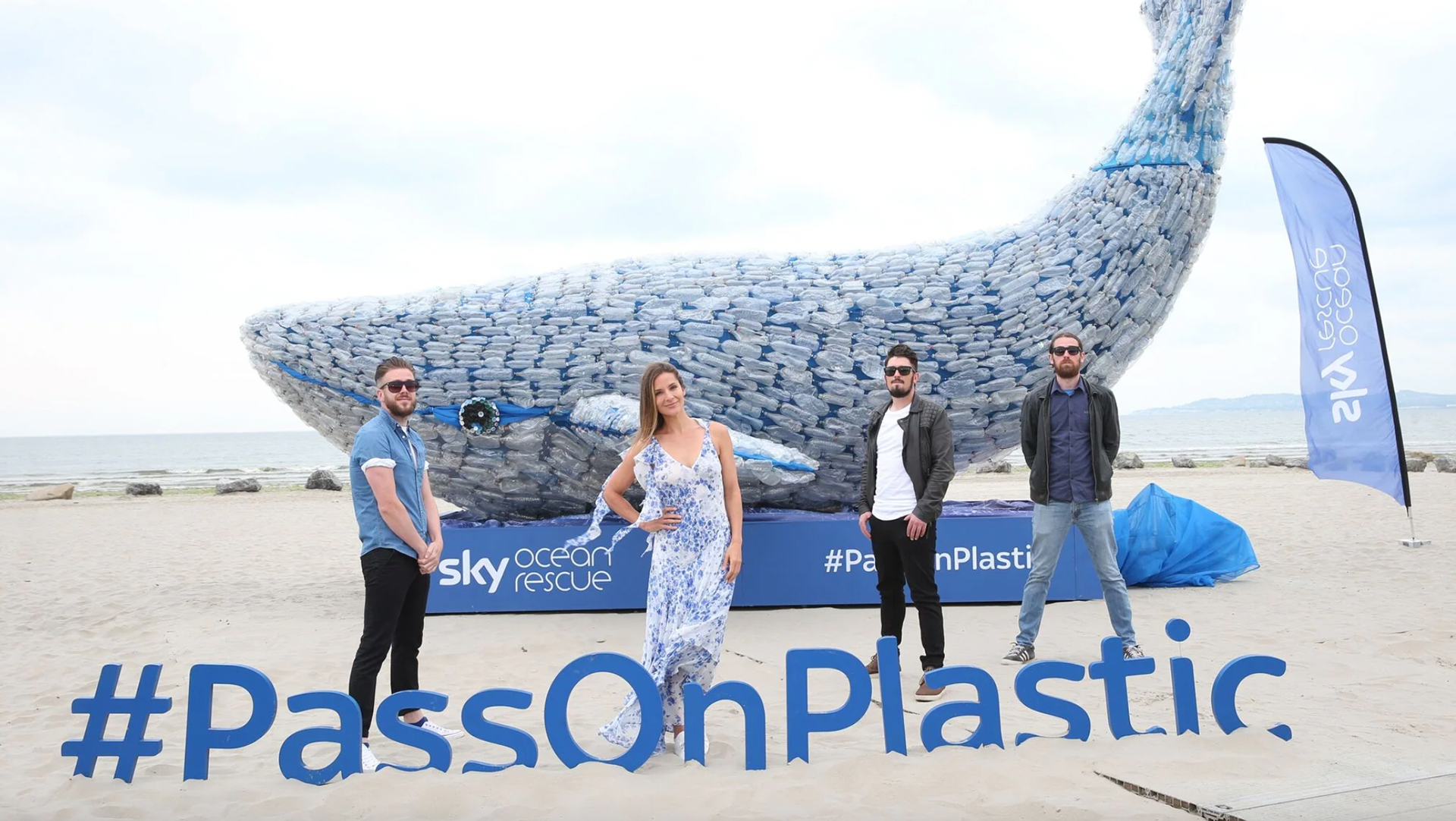38-Foot-Tall Whale Made From 10,000 Pounds of Plastic Waste
The 38-foot-tall whale sculpture, known as Skyscraper, was created by the artist group STUDIOKCA, an architecture and design studio based in Brooklyn, New York. Founded by Jason Klimoski and Lesley Chang, STUDIOKCA specializes in using architecture and design to bring attention to environmental and social issues.
Skyscraper was constructed using over 10,000 pounds of plastic waste collected from the Pacific Ocean. The sculpture was installed in 2018 as part of the Bruges Triennial, an art and architecture festival in Belgium that explores urban and environmental themes. The whale’s massive form, appearing to leap out of a canal, was meant to highlight the growing crisis of plastic pollution in the world’s oceans. The installation aimed to provoke public awareness and discussion about the impact of human waste on marine life.
STUDIOKCA has continued to work on sustainable and thought-provoking projects that merge art, architecture, and environmental activism. Their work often emphasizes the reuse of materials, large-scale public installations, and immersive experiences that encourage people to rethink their relationship with the environment.




WHAT PAM LONGOBARDI DOES WITH OCEAN POLLUTION PLASTIC...
Pam Longobardi is an American artist and activist known for transforming ocean plastic pollution into powerful environmental art. Through her work, she raises awareness about the devastating impact of plastic waste on marine ecosystems.
Drifters Project
In 2006, Longobardi founded the Drifters Project, a global environmental art initiative that involves collecting plastic debris from oceans, beaches, and remote coastlines. She then repurposes these materials into striking art installations, sculptures, and exhibitions. The project highlights how plastic pollution is reshaping the natural world and serves as a visual call to action.
Her Artistic Approach
Longobardi’s work often features large-scale assemblages made from plastic items such as bottles, fishing gear, toys, and fragments of consumer waste. She arranges these objects to resemble natural forms like coral reefs, skeletons, or abstract landscapes, emphasizing both the beauty and tragedy of plastic's presence in nature.
Environmental Activism & Collaborations
Beyond her artwork, she collaborates with scientists, conservationists, and indigenous communities to document plastic pollution and advocate for ocean conservation. She has worked on cleanup missions in remote locations like Hawaii, Costa Rica, and Greece.
Recognition & Impact
Her art has been exhibited internationally, and she has received awards for her contributions to environmental awareness. Through both artistic expression and hands-on activism, she challenges people to reconsider their relationship with plastic and the planet.
Angela Haseltine Pozzi: Turning Ocean Trash into Art for Conservation...
Angela Haseltine Pozzi is an American artist and environmental activist best known for transforming ocean plastic pollution into large-scale sculptures of marine life. Her work raises awareness about the devastating effects of plastic waste on the environment, particularly on sea creatures.
Washed Ashore Project:
In 2010, Pozzi founded Washed Ashore, a nonprofit organization that collects plastic debris from beaches and repurposes it into massive sculptures of marine animals affected by pollution. These sculptures serve as educational tools, highlighting the dangers of plastic waste to wildlife.
The Approach:
Pozzi and her team create lifelike sculptures of whales, turtles, fish, seabirds, and other ocean creatures—entirely made from plastic trash like bottle caps, toothbrushes, fishing nets, and discarded containers. The contrast between the beauty of the sculptures and the ugly reality of the materials used forces viewers to confront the problem of ocean pollution.
Environmental Advocacy & Education:
Washed Ashore’s sculptures have been exhibited in museums, aquariums, and public spaces across the U.S., including the Smithsonian and the National Zoo. The project also provides educational programs and workshops to teach people about plastic pollution and inspire action to reduce waste.
The Impact & Her Recognition:
Pozzi’s work has reached millions of people, sparking conversations about sustainability and the need for better waste management. Her project continues to grow, collaborating with conservation groups, schools, and policymakers to advocate for ocean protection.